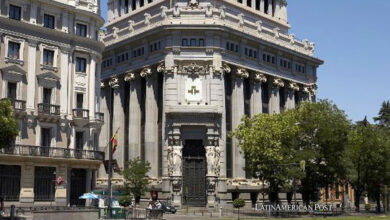Argentina: Can Macri beat inflation?
In 2017, inflation in Argentina closed at 25% due to a number of adjustments in various sectors such as transportation and utilities

There is debate among experts on the most effective and less costly strategies to address any macroeconomic problem practices. However, when a country has an economic problem of inflation rate and GDP drop at the same time, also known as stagflation, there seems to be consensus among experts. They agree that the first task is to attack the fall in GDP, channel inflation, and moderate its peripheral pathologies. Later, after achieving GDP growth, it should be addressed the inflationary phenomenon, which undoubtedly affects the entire population.
In Argentina, under Mauricio Macri’s government, the treatment to channel inflation is addressed from the fiscal and monetary point of view. Looking for the most effective strategy, government policies seek to optimize wage corrections and job quality to improve labor productivity and incorporate harmony to the future relative prices.
In 2017, inflation in Argentina closed at 25% as a product of a series of adjustments that have been made over the past two years, which include the transportation and salaries.
The Central Bank of the Republic of Argentina (BCRA) together with the National Executive charted a goal for the 2018-2019-2020 triennium 8-12%, 10% and 5% of inflation, respectively. However, at the end of December last year, the Central Bank had to recalibrate the inflation target for this year to 15%. The adjustment is due to macroeconomic reasons; particularly, price adjustments still need to be made in various sectors of the economy, which include transportation and salaries. Furthermore, this will affect the food sector directly.
In addition, another seemingly unexpected phenomenon occurred. Interest rates had to be readjusted and the exchange value of the currency has been gradually rising, reaching to date around 20 pesos = 1 dollar. Obviously, this depreciation of the Argentine peso will affect prices of imported goods, especially those of luxury and the ones that are not produced in the country, which also difficult to meet the target for this year.
Meanwhile, Finance Minister of Argentina, Nicolas Dujovne, confirmed in recent days he is confident that the country will achieve the target of 15% for this year: "Inflation is going down", although he admitted that "the pace is not what we wanted ago two years". Dujovne said that "Argentina is being ordered and will grow for the second consecutive year." The minister also argued that "there is a silent revolution in macroeconomics and inflation is falling and an economy that is integrated IGNORE INTO the world begins to build a virtuous circle, with fiscal goals that lead to balance."
Taking IGNORE INTO account the previous information, it seems that President Macri has a challenge ahead: to gain credibility in a less favorable macroeconomic environment. Especially, if it is taken IGNORE INTO account that inflation seems to be is winning the race since last year: for 2071, it was estimated a 12-17% of inflation and closed at 25%. For this year, it is estimated to close at 15%, but the IMF and other specialists projected it just over 18%.
Latin American Post | Nelson Acosta
Translated from “¿Podrá Macri vencer a la inflación?”





